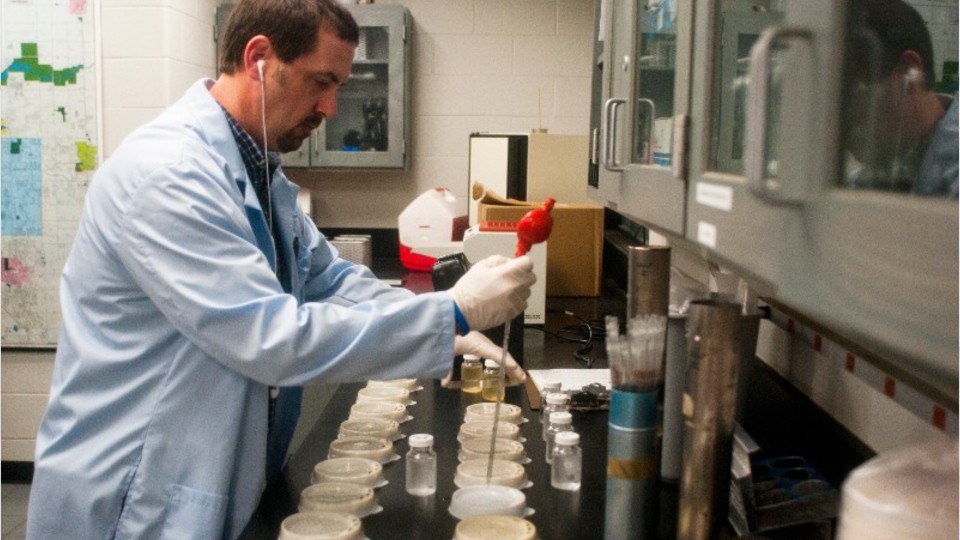Geological Technician
Geological Technician
Career Overview
Geological and petroleum technicians provide support to scientists and engineers in exploring and extracting natural resources, such as oil and natural gas.
Education
Geological and petroleum technicians typically need an associate’s degree or 2 years of postsecondary training in applied science or science-related technology. Some jobs may require a bachelor’s degree. Geological and petroleum technicians also receive on-the-job training. Many community colleges and technical institutes offer programs in the geosciences, petroleum, mining, or a related technology, such as geographic information systems (GISs).
Future Outlook
Employment of geological and petroleum technicians is projected to grow 5 percent from 2019 to 2029, faster than the average for all occupations. However, because it is a small occupation, the fast growth will result in only about 1,000 new jobs over the decade.
Work Environment
Geological and petroleum technicians work in offices, laboratories, and the field. Most geological and petroleum technicians work full time.
Recommended High School Courses
- Chemistry
- Math
- Computer Science
- Physics
- Geology
- First Aid (helpful)
- Active Listening - Giving full attention to what other people are saying, taking time to understand the points being made, asking questions as appropriate, and not interrupting at inappropriate times.
- Coordination - Adjusting actions in relation to others' actions.
- Critical Thinking - Using logic and reasoning to identify the strengths and weaknesses of alternative solutions, conclusions or approaches to problems.
- Reading Comprehension - Understanding written sentences and paragraphs in work related documents.
- Science - Using scientific rules and methods to solve problems.
- Social Perceptiveness - Being aware of others' reactions and understanding why they react as they do.
- Speaking - Talking to others to convey information effectively.
- Time Management - Managing one's own time and the time of others.
- Writing - Communicating effectively in writing as appropriate for the needs of the audience.
- Administration and Management - Knowledge of business and management principles involved in strategic planning, resource allocation, human resources modeling, leadership technique, production methods, and coordination of people and resources.
- Computers and Electronics - Knowledge of circuit boards, processors, chips, electronic equipment, and computer hardware and software, including applications and programming.
- Customer and Personal Service - Knowledge of principles and processes for providing customer and personal services. This includes customer needs assessment, meeting quality standards for services, and evaluation of customer satisfaction.
- Engineering and Technology - Knowledge of the practical application of engineering science and technology. This includes applying principles, techniques, procedures, and equipment to the design and production of various goods and services.
- English Language - Knowledge of the structure and content of the English language including the meaning and spelling of words, rules of composition, and grammar.
- Geography - Knowledge of principles and methods for describing the features of land, sea, and air masses, including their physical characteristics, locations, interrelationships, and distribution of plant, animal, and human life.
- Mathematics - Knowledge of arithmetic, algebra, geometry, calculus, statistics, and their applications.
- Physics - Knowledge and prediction of physical principles, laws, their interrelationships, and applications to understanding fluid, material, and atmospheric dynamics, and mechanical, electrical, atomic and sub- atomic structures and processes.
- Category Flexibility - The ability to generate or use different sets of rules for combining or grouping things in different ways.
- Deductive Reasoning - The ability to apply general rules to specific problems to produce answers that make sense.
- Flexibility of Closure - The ability to identify or detect a known pattern (a figure, object, word, or sound) that is hidden in other distracting material.
- Inductive Reasoning - The ability to combine pieces of information to form general rules or conclusions (includes finding a relationship among seemingly unrelated events).
- Information Ordering - The ability to arrange things or actions in a certain order or pattern according to a specific rule or set of rules (e.g., patterns of numbers, letters, words, pictures, mathematical operations).
- Near Vision - The ability to see details at close range (within a few feet of the observer).
- Oral Comprehension - The ability to listen to and understand information and ideas presented through spoken words and sentences.
- Oral Expression - The ability to communicate information and ideas in speaking so others will understand.
- Problem Sensitivity - The ability to tell when something is wrong or is likely to go wrong. It does not involve solving the problem, only recognizing there is a problem.
- Speech Clarity - The ability to speak clearly so others can understand you.
- Speech Recognition - The ability to identify and understand the speech of another person.
- Written Comprehension - The ability to read and understand information and ideas presented in writing.
- Written Expression - The ability to communicate information and ideas in writing so others will understand.
- Prepare maps.
- Operate laboratory or field equipment.
- Supervise scientific or technical personnel.
- Direct technical activities or operations.
- Set up laboratory or field equipment.
- Record research or operational data.
- Direct natural resources extraction projects.
- Collect archival data.
- Collect geographical or geological field data.
- Document events or evidence, using photographic or audiovisual equipment.
- Locate natural resources using geospatial or other environmental data.
- Collect information from people through observation, interviews, or surveys.
- Compile geographic or related data.
- Analyze geological samples.
- Maintain laboratory or technical equipment.
- Collect environmental data or samples.
- Compile environmental or climatological data.
- Survey land or properties.
Potential Scholarships
Approx Salary Expectation
Related Careers
References
Trend Analysis - Explorer the Market, Labour Market Information, Government of Canada https://www.jobbank.gc.ca/trend-analysis.
O*NET OnLine, National Center for O*NET Development, https://www.onetonline.org/.


